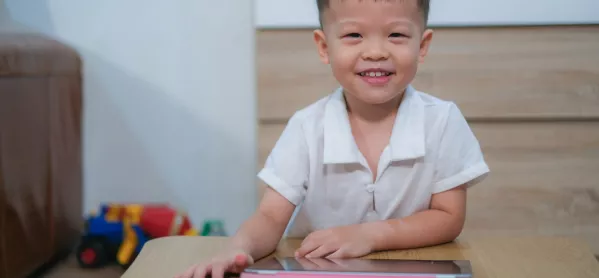The early years foundation stage will still apply “in full” despite the coronavirus outbreak, the government has said.
However, children finishing Reception this year will not be assessed against the early learning goals, which form the early years foundation stage (EYFS) profile, according to the Department for Education (DfE).
The DfE has issued new guidance stating that early years settings remaining partially open are still expected to follow the learning and development requirements as set out in the EYFS framework.
Coronavirus: Open schools ‘won’t be educational’
EYFS: Everything you need to know
Early learning: Decision to scrap ‘important’ early years goal defended
This is despite the fact that schools are not expected to follow the national curriculum, instead taking on the role of “a safe place” for children of key workers and vulnerable pupils.
The DfE specified that “exceptional circumstances” means “detailed curriculum or teaching approaches are not prescribed” for early years settings, and may instead be tailored “according to what is appropriate to the children in their care at this time”.
The EYFS profile, which assesses children’s development at the end of the Reception year, has been cancelled.
The guidance states: “The Early Years Foundation Stage (EYFS) statutory framework, which sets the standards that schools and childcare settings must meet for the learning, development and care of children under 5, applies in full at this time, with the exception of the EYFS profile, which has been cancelled for this year.
“We are keeping the regulatory position under review and will provide further information if any changes to the EYFS statutory framework are made during this period.”
The DfE guidance also specifies that staff-to-child ratios set out in the EYFS “can be changed if necessary”.
“However, childcare settings or schools remain responsible for ensuring the safety and security of children in their care,” it adds.
Beatrice Merrick, chief executive of the Early Education charity, said: “I think the DfE didn’t feel it necessary to suspend the EYFS because it is a very different animal to the national curriculum.
“So if children are in settings, they will still be doing a very similar mix of activities, basically involving learning through play.
“And in the early years, care and education are so tied up together that - obviously there is an impact in terms of children aren’t necessarily able to get out and about and experience things beyond the setting - but within the setting they will still probably be experiencing most of the areas of learning that they would normally do.”
What is the EYFS?
The early years foundation stage (EYFS) sets the standards for learning from birth to age 5 - before key stage 1 begins in Year 1.
The statutory EYFS framework is split into three main sections: the learning and development requirements; assessment; and the safeguarding and welfare requirements.
It applies to all early years providers in England: local authority-maintained schools, non-maintained schools, independent schools, academies and free schools, nurseries, private nursery schools, preschools and playgroups, and childminders.




